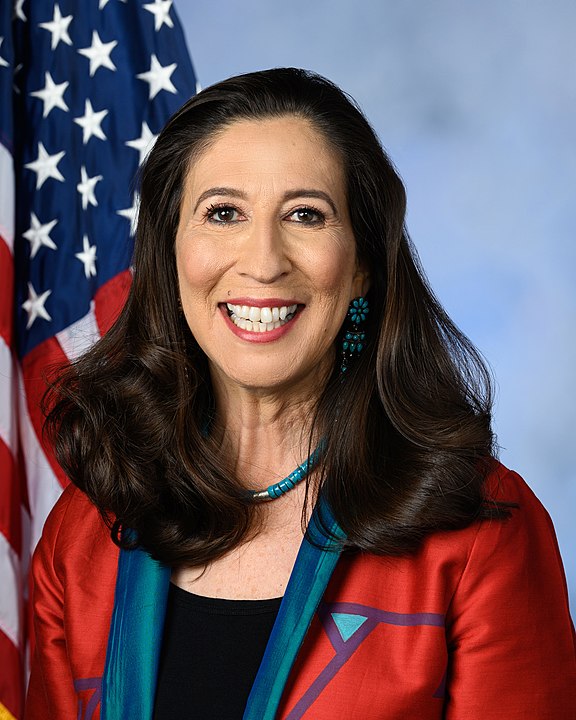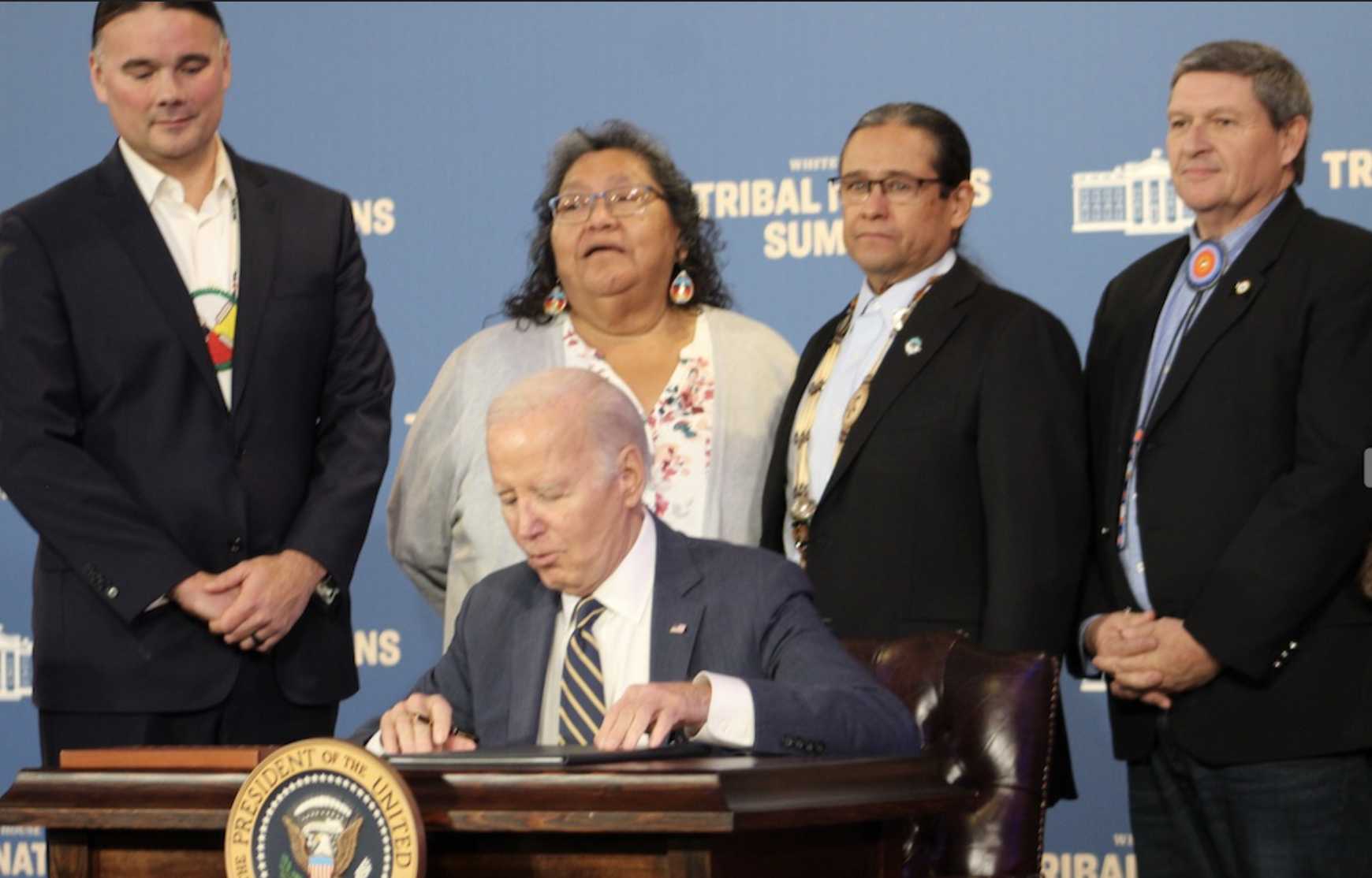In response to President Donald Trump’s revocation of Executive Order 14112—originally signed by President Joe Biden to promote tribal self-determination for the 574 federally recognized tribes by improving access to federal funding and enhancing autonomy over its use—Rep. Teresa Leger Fernández D-NM-03) led a bicameral coalition of 52 Members of Congress on Wednesday in a letter urging the president to reinstate the order.

President Trump revoked the executive order named “Reforming Federal Funding and Support for Tribal Nations to Better Embrace Our Trust Responsibilities and Promote the Next Era of Tribal Self-Determination” on Friday, March 14.
The president’s revocation of the Executive Order reversed a key policy aimed at empowering Tribal Nations by enhancing their access to federal funding and eliminating bureaucratic obstacles. Originally signed by President Biden at the White House Tribal Nations Summit on December 6, 2023, the order sought to limit government interference in Tribal funding and ensure federal agencies upheld their legal obligations to tribes.
The order had tangible benefits, such as improving federal support for tribal emergency response efforts and funding critical infrastructure projects, including fisheries management and broadband expansion. It also established the Tribal Access to Capital Clearinghouse, a centralized resource to help Native businesses navigate federal funding opportunities. Its repeal now creates uncertainty for Tribal Nations, potentially reinstating restrictive barriers to funding and destabilizing federally supported tribal programs.
The letter also demands an explanation of why the order was rescinded. The lawmakers stressed that “Tribal Nations have a legal, government-to-government relationship with the United States” and that their inherent sovereignty is recognized in the U.S. Constitution, treaties, and federal law. They also emphasized that Tribal Nations should not be included in any efforts to target diversity, equity, and inclusion programs, stating, “Tribal Nations have legal status as a political, not racial class, and the United States has a trust responsibility to them.”

President Joe Biden signs executive order at the White House Tribal Nations Summit on December 7, 2023. (Photo/Levi Rickert for Native News Online)
The letter pointed to key provisions of the rescinded executive order that aligned with the administration’s stated goals, including increasing “accessibility, flexibility, and utility of Federal funding and programs for Tribal Nations, while increasing the transparency, and efficiency of Federal funding processes,” said the Members. The lawmakers warned that removing these provisions will exacerbate challenges that already hinder Tribal Nations’ ability to meet their communities’ needs.
“Too often, federal funding processes impose unnecessary barriers for Tribal Nations, including restrictive limitations and burdensome reporting requirements,” they wrote. “Without the coordination and efficiency processes established under the Tribal Self-Determination EO, these challenges will only grow, creating uncertainty and instability that directly undermines tribal self-determination.”
The lawmakers called on the administration to immediately reinstate Executive Order 14112 and engage in meaningful consultation with Tribal Nations moving forward.
“We urge you to restore [the Biden-era executive order] and work directly with Tribal Nations, Congress, and your federal agencies to ensure Tribal Nations are able to exercise their sovereignty and more efficiently access federal support,” the letter concluded.
The full text of the letter can be found HERE.
More Stories Like This
Native News Weekly (August 25, 2024): D.C. BriefsNational Congress of American Indians Mourns the Passing of Former Executive Director JoAnn K. Chase
Navajo Nation Mourns the Passing of Former Vice President Rex Lee Jim
Deb Haaland Earns Endorsement From Communications Workers of America Local 7076
University Soccer Standout Leads by Example
Help us defend tribal sovereignty.
At Native News Online, our mission is rooted in telling the stories that strengthen sovereignty and uplift Indigenous voices — not just at year’s end, but every single day.
Because of your generosity last year, we were able to keep our reporters on the ground in tribal communities, at national gatherings and in the halls of Congress — covering the issues that matter most to Indian Country: sovereignty, culture, education, health and economic opportunity.
That support sustained us through a tough year in 2025. Now, as we look to the year ahead, we need your help right now to ensure warrior journalism remains strong — reporting that defends tribal sovereignty, amplifies Native truth, and holds power accountable.
 The stakes couldn't be higher. Your support keeps Native voices heard, Native stories told and Native sovereignty defended.
The stakes couldn't be higher. Your support keeps Native voices heard, Native stories told and Native sovereignty defended.
Stand with Warrior Journalism today.
Levi Rickert (Potawatomi), Editor & Publisher

